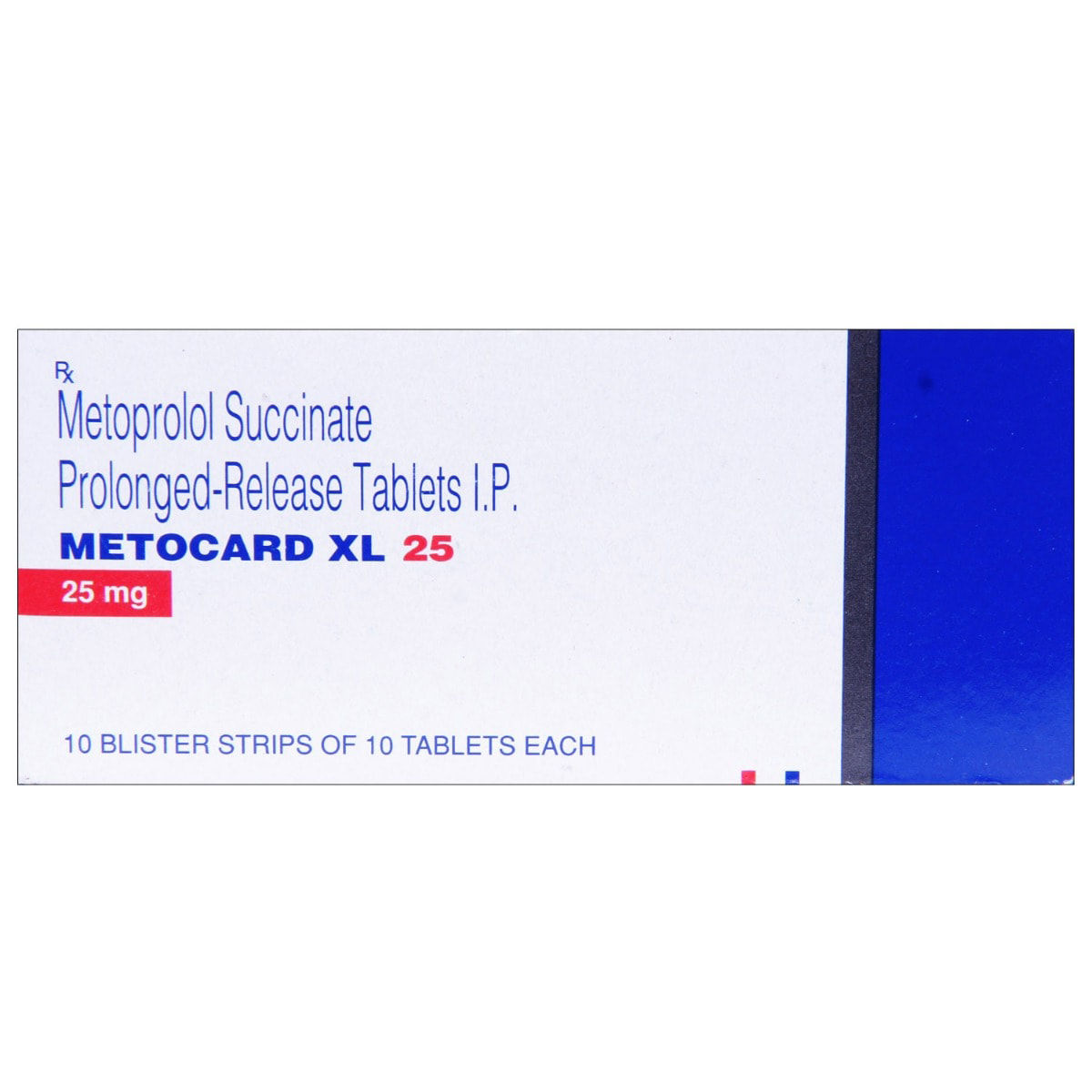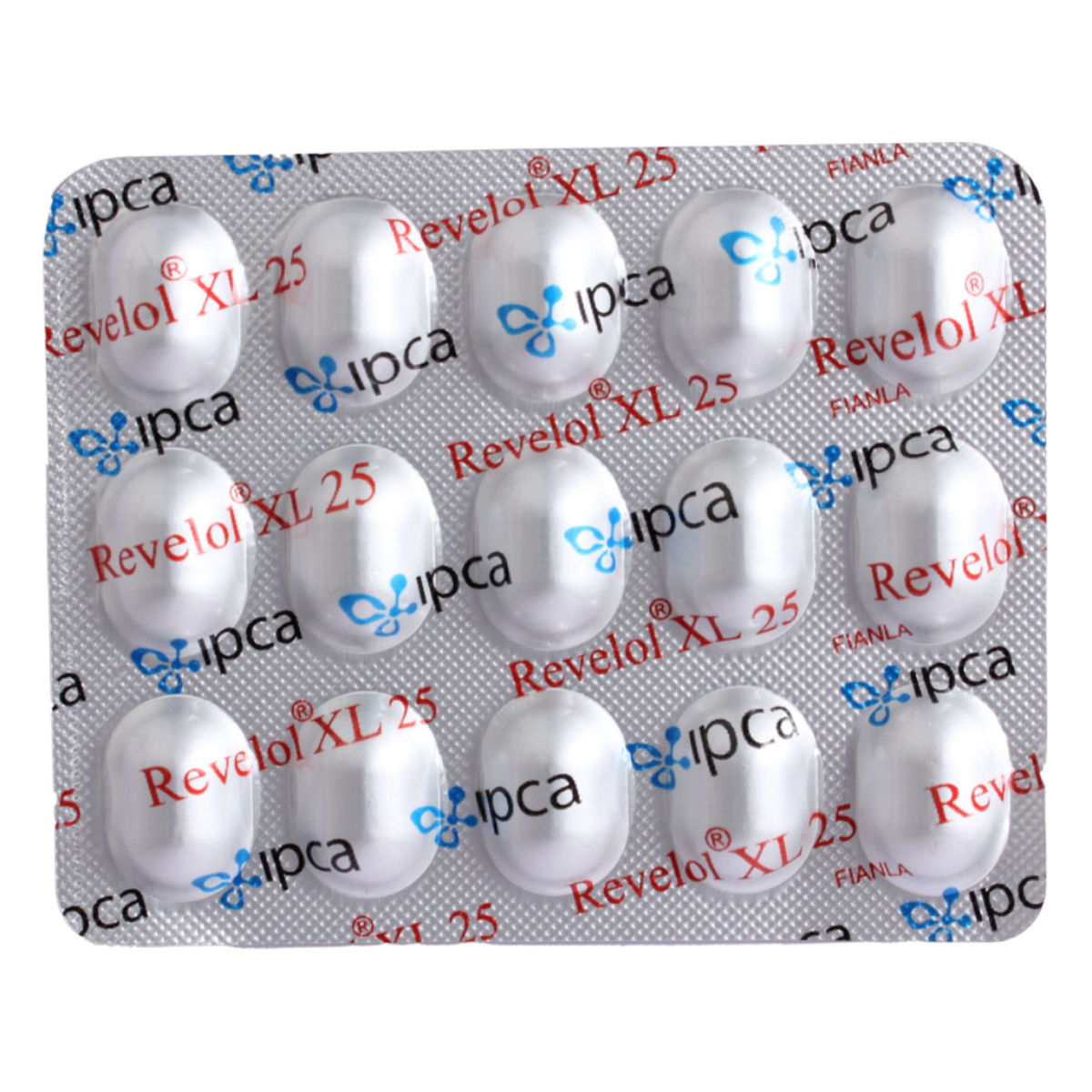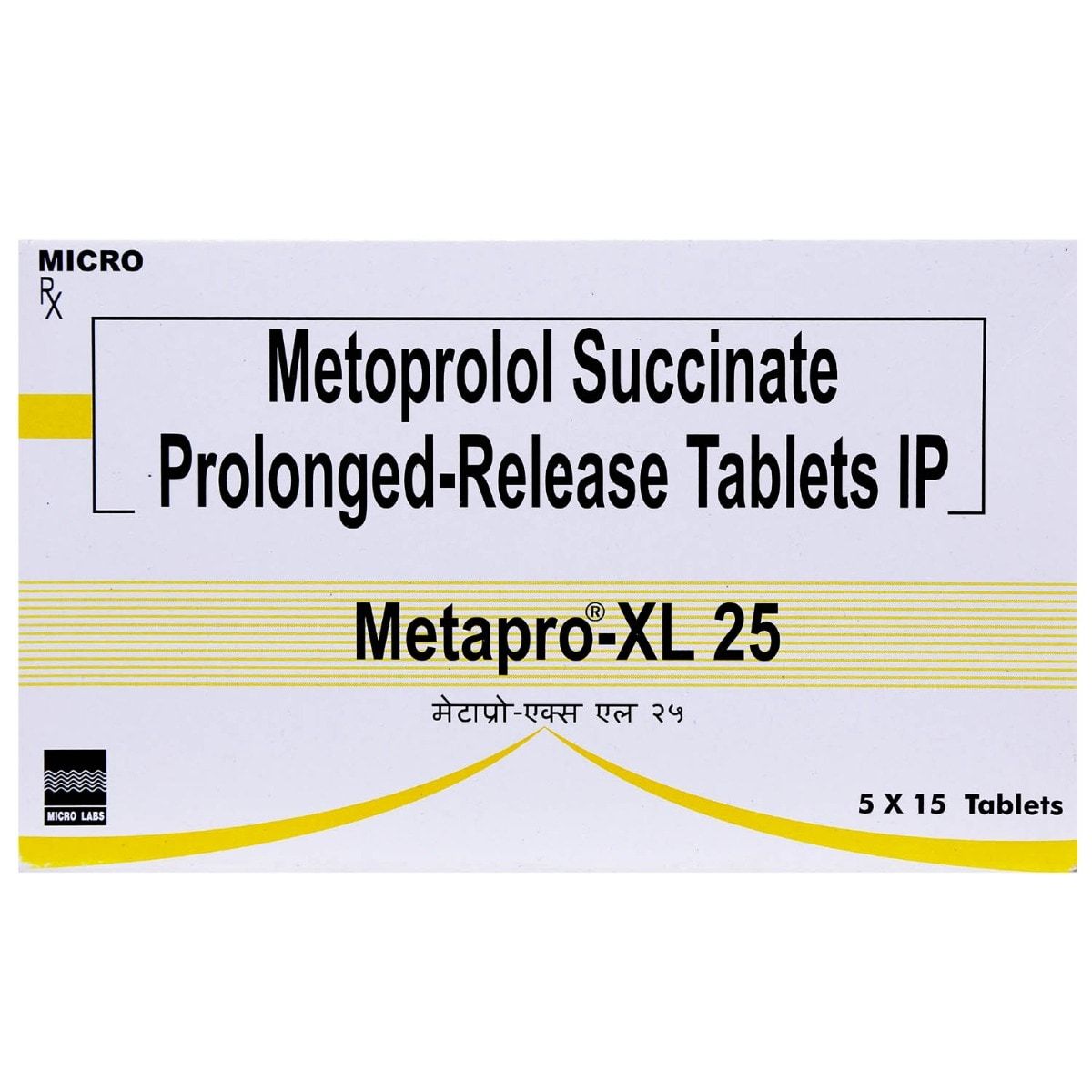Betaloc 25 mg Tablet 30's
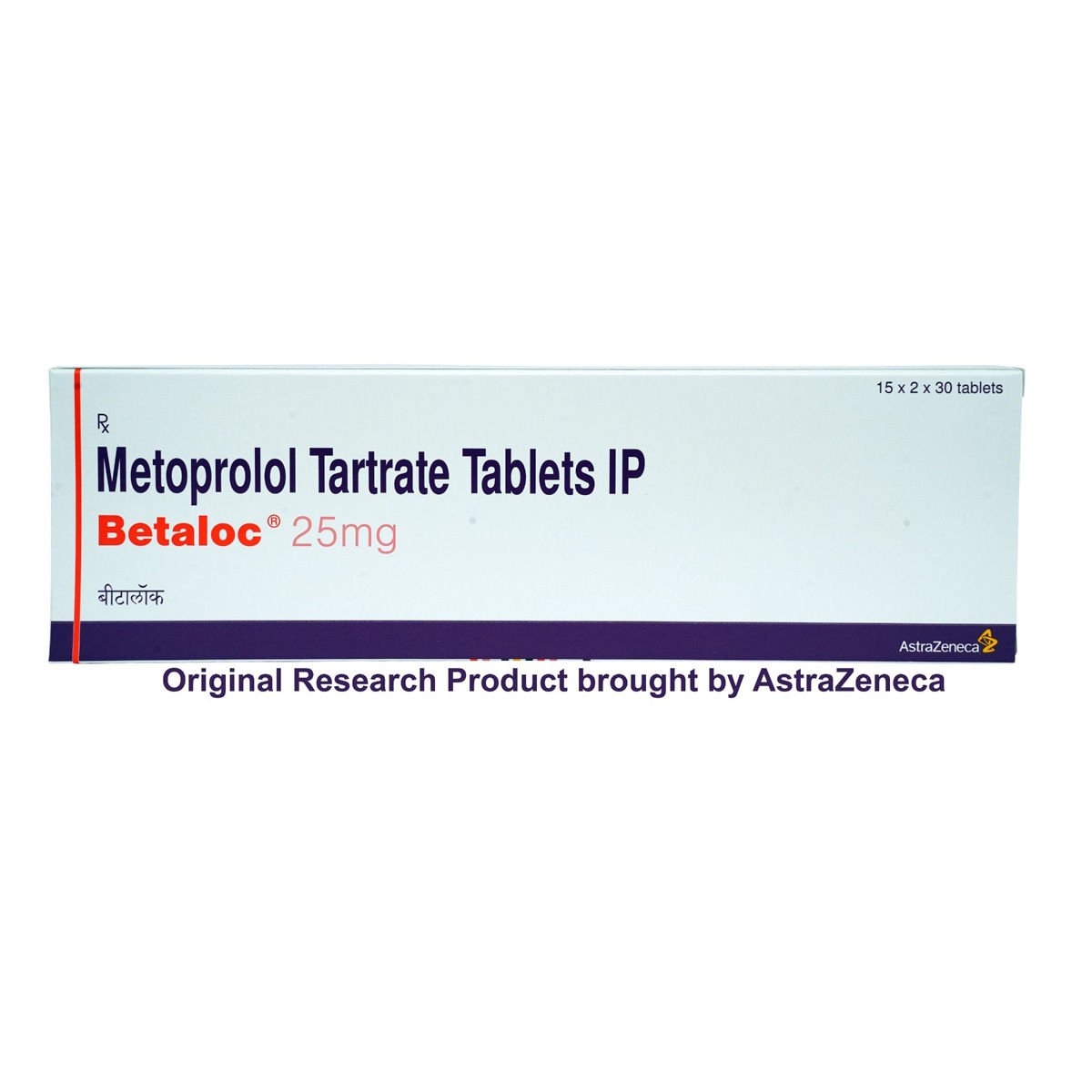

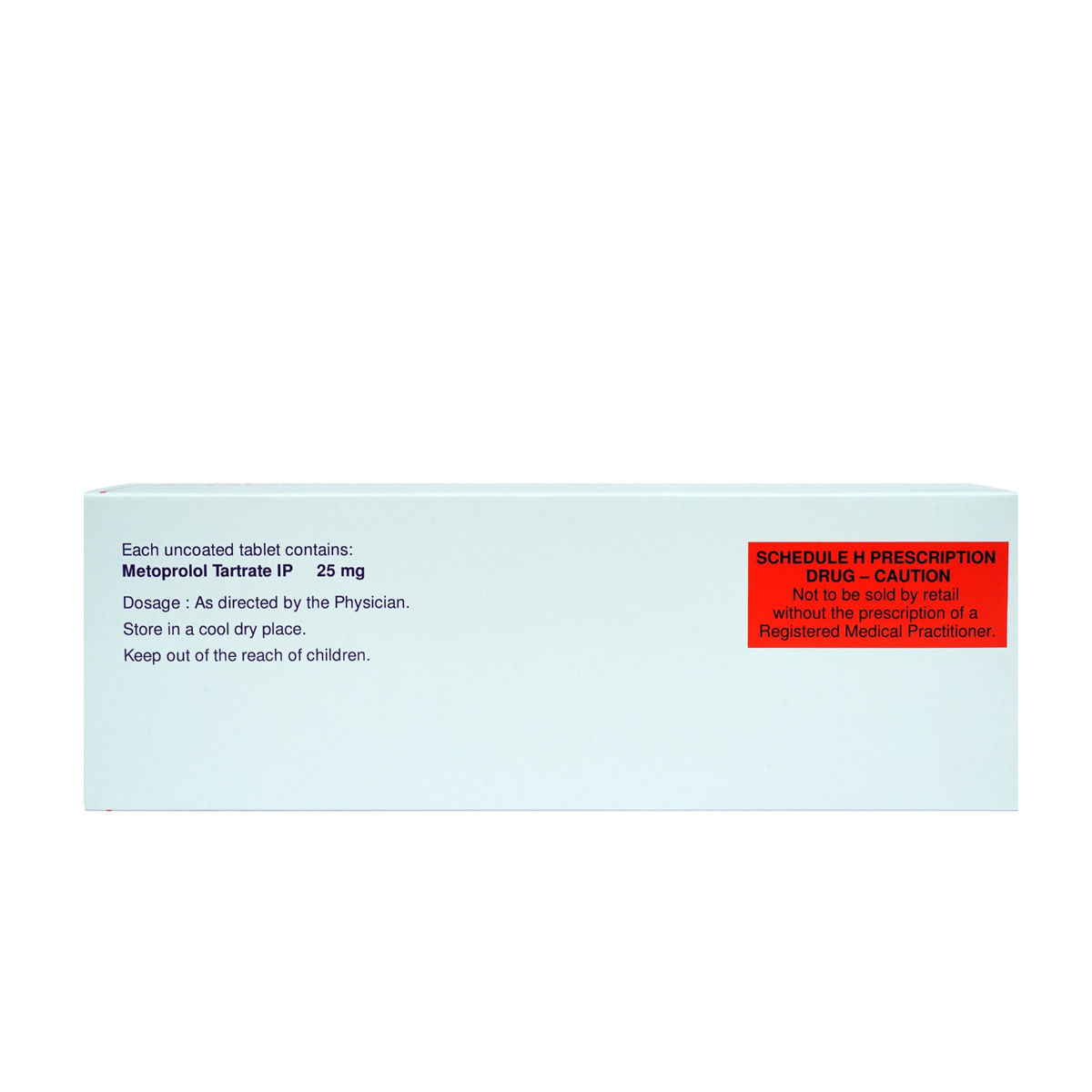

₹109.4*
MRP ₹121.5
10% off
₹103.27*
MRP ₹121.5
15% CB
₹18.23 cashback(15%)
Free Delivery
With Circle membership
(Inclusive of all Taxes)
This offer price is valid on orders above ₹800. Apply coupon PHARMA10/PHARMA18 (excluding restricted items)
Know Your Delivery Time
Provide Delivery Location
Available Offers
 Prescription drug
Prescription drugWhats That
 144 people bought
144 people bought 
Secure Payment

India's Most Trusted Pharmacy

Genuine Products
Composition :
Manufacturer/Marketer :
Consume Type :
Return Policy :
Expires on or after :
About Betaloc 25 mg Tablet
Betaloc 25 mg Tablet belongs to a group of medicines called beta-blockers used to treat high blood pressure (hypertension), heart-related chest pain (angina), irregular heart rhythm (arrhythmia), and to protect the heart after a heart attack (myocardial infarction). Hypertension or high blood pressure is a chronic condition in which the blood exerts an increased pressure against the arteries that may lead to various types of heart diseases. Besides this, Betaloc 25 mg Tablet may also help in relieving symptoms of migraine-related headache and tremors (fits).
Betaloc 25 mg Tablet contains 'Metoprolol', which helps in slowing down the heart rate, making it easier for the heart to pump blood throughout the body. This lowers the blood pressure and helps in reducing the risk of having a stroke, heart attack, or other heart or kidney problems in the future.
Based on your medical condition, your doctor will decide the dose and duration. In some cases, Betaloc 25 mg Tablet may cause certain common side effects like dizziness, tiredness, diarrhoea, stomach pain, nausea, and headache. Most of these side effects do not require medical attention and resolve gradually over time. However, if the side effects are persistent, reach out to your doctor.
Inform your doctor if you have low blood pressure, asthma, overactive thyroid, metabolic acidosis, or severe blood circulation problems. Consult your doctor before taking Betaloc 25 mg Tablet if you are pregnant or breastfeeding. Betaloc 25 mg Tablet is not recommended for use in children. Betaloc 25 mg Tablet may cause dizziness, so drive with caution. Avoid alcohol consumption while taking Betaloc 25 mg Tablet as it might increase the blood pressure-lowering effect of Betaloc 25 mg Tablet . Keep your doctor informed about your health condition and medications to rule out any interactions.
Uses of Betaloc 25 mg Tablet
Directions for Use
Medicinal Benefits
Betaloc 25 mg Tablet belongs to a group of medicines called beta-blockers used to treat high blood pressure (hypertension), heart-related chest pain (angina), irregular heart rhythm (arrhythmia), and to protect the heart after a heart attack (myocardial infarction). Besides this, it also helps in relieving symptoms of migraine-related headaches and tremors (fits). Betaloc 25 mg Tablet helps in slowing down the heart rate, making it easier for the heart to pump blood throughout the body. This lowers the blood pressure and helps in reducing the risk of having a stroke, heart attack, or other heart or kidney problems in the future.
How Betaloc 25 mg Tablet Works
Storage
- Do not stand up suddenly. Lie down and get up slowly only when you feel better.
- Avoid alcohol and large meals.
- Drink enough water before standing for long periods.
- Exercise regularly; however, avoid exercising in extreme heat.
- Eat small, low-carb meals.
- Wear compression stockings.
- Inform your doctor about your constipation symptoms. They may adjust your medication or advise alternative treatments.
- Stay hydrated by drinking sufficient of water (at least 8-10 glasses a day) to help soften stool and promote bowel movements.
- Increase fibre intake by eating foods high in fibre, such as fruits, whole grains, vegetables and legumes, to help bulk up the stool.
- Establish a bowel routine by trying to go to the bathroom at the same time each day to train your bowels.
- Engaging in regular exercise, like walking or yoga, can support in bowel movement stimulation.
- Consult your doctor if constipation persists, and discuss alternative treatments or adjustments to your medication.
- Reducing the amount of time you spend outside and indoors in the cold.
- keeping your hands warm by donning mittens, gloves, or other protective clothing.
- Observing a skincare regimen that safeguards your fingers and hands.
- To improve circulation, give your hands and feet a little massage.
- Inform Your Doctor: Notify your doctor immediately about your diarrhoea symptoms. This allows them to adjust your medication or provide guidance on managing side effects.
- Stay Hydrated: Drink plenty of fluids to replace lost water and electrolytes. Choose water, clear broth, and electrolyte-rich drinks. Avoid carbonated or caffeinated beverages to effectively rehydrate your body.
- Follow a Bland Diet: Eat easy-to-digest foods to help firm up your stool and settle your stomach. Try incorporating bananas, rice, applesauce, toast, plain crackers, and boiled vegetables into your diet.
- Avoid Trigger Foods: Steer clear of foods that can worsen diarrhoea, such as spicy, fatty, or greasy foods, high-fibre foods, and dairy products (especially if you're lactose intolerant).
- Practice Good Hygiene: Maintain good hygiene to prevent the spread of infection. To stay healthy, wash your hands frequently, clean and disinfect surfaces regularly, and avoid exchanging personal belongings with others.
- Take Anti-Diarrheal Medications: If your doctor advises, anti-diarrheal medications such as loperamide might help manage diarrhoea symptoms. Always follow your doctor's directions.
- Keep track of your diarrhoea symptoms. If they don't get better or worse or are accompanied by severe stomach pain, blood, or dehydration signs (like extreme thirst or dark urine), seek medical help.
- Tell your doctor immediately if you experience shortness of breath after taking medication.
- Your doctor may adjust the medication regimen or dosage or give alternative medical procedures to minimize the symptoms of shortness of breath.
- Monitor your oxygen levels and breathing rate regularly to track changes and potential side effects.
- For controlling stress and anxiety, try relaxation techniques like deep breathing exercises, meditation, or yoga.
- Make lifestyle changes, such as quitting smoking, exercising regularly, and maintaining a healthy weight.
- Seek emergency medical attention if you experience severe shortness of breath, chest pain, or difficulty speaking.
- Follow up regularly with your doctor to monitor progress, adjust treatment plans, and address any concerns or questions.
- Inform your doctor about dizziness symptoms. They may adjust your medication regimen or prescribe additional medications to manage symptoms.
- Follow your doctor's instructions for taking medication, and take it at the same time every day to minimize dizziness.
- When standing up, do so slowly and carefully to avoid sudden dizziness.
- Avoid making sudden movements, such as turning or bending quickly, which can exacerbate dizziness.
- Drink plenty of water throughout the day to stay hydrated and help alleviate dizziness symptoms.
- If you're feeling dizzy, sit or lie down and rest until the dizziness passes.
- Track when dizziness occurs and any factors that may trigger it, and share this information with your doctor to help manage symptoms.
What if I have taken an overdose of Betaloc 25 mg Tablet
Drug Warnings
Do not take Betaloc 25 mg Tablet if you are allergic to Betaloc 25 mg Tablet or any other beta-blockers. Avoid taking Betaloc 25 mg Tablet if you have/had heart conduction, rhythm problems, uncontrolled/severe heart failure, blocked blood vessels, blood circulation problems, untreated pheochromocytoma, metabolic acidosis, low blood pressure, or prinzmetal angina. Inform your doctor if you have asthma, COPD, diabetes, blood vessel disorder, slow heart rate, pheochromocytoma, myasthenia gravis, dry eye problems, kidney or liver impairment; if you are taking anti-depressants, other blood pressure-lowering medicines, or anti-arrhythmic agents. Consult your doctor before taking Betaloc 25 mg Tablet if you are pregnant or breastfeeding. Betaloc 25 mg Tablet is not recommended for children as safety and efficacy have not been established. Betaloc 25 mg Tablet may cause dizziness, so drive with caution. Let your doctor know if you are taking other prescription/non-prescription medicines or herbal supplements.
Drug-Drug Interactions
Drug-Drug Interactions
Login/Sign Up
Taking Betaloc 25 mg Tablet with Theophylline could make Betaloc 25 mg Tablet less effective and increase the side effects of theophylline
How to manage the interaction:
Although taking Betaloc 25 mg Tablet and theophylline together can result in an interaction, it can be taken if a doctor has advised it. However, if you experience symptoms such as nausea, vomiting, insomnia, tremors, restlessness, uneven heartbeats, or difficulty breathing, contact a doctor immediately. Do not discontinue any medications without consulting a doctor.
Taking Betaloc 25 mg Tablet with Disopyramide can increase the effects of disopyramide
How to manage the interaction:
Co-administration of Betaloc 25 mg Tablet with Disopyramide can result in an interaction, but it can be taken if a doctor has advised it. However, if you notice any of these signs - feeling dizzy, having a racing heart, or a heartbeat that's too slow or too fast - contact a doctor right away. Do not stop using any medications without talking to a doctor.
Co-administration of Clonidine and Betaloc 25 mg Tablet together may lower blood pressure and slower heart rate.
How to manage the interaction:
Although there is a possible interaction between Clonidine and Betaloc 25 mg Tablet, you can take these medicines together if prescribed by a doctor. However, if you experience headaches, slow heartbeat, or dizziness, contact a doctor. You are advised to maintain your blood pressure. Do not discontinue the medication without consulting a doctor.
Co-administration of Verapamil with Betaloc 25 mg Tablet together may lead to increased risk or severity of side effects.
How to manage the interaction:
Although taking verapamil and Betaloc 25 mg Tablet together can result in an interaction, it can be taken if a doctor has advised it. However, if you experience symptoms such as dizziness, fainting, palpitations, slow or fast pulse, or irregular heartbeats, consult a doctor immediately. Do not discontinue any medications without consulting a doctor.
Taking Metoprolol with Diltiazem together may lead to increased side effects.
How to manage the interaction:
Co-administration of Betaloc 25 mg Tablet with Diltiazem can result in an interaction, but it can be taken if a doctor has advised it. However, if you notice any of these signs - fatigue, headache, fainting, swollen hands and feet, weight gain, difficulty breathing, chest pain, or irregular heartbeat, consult the doctor. It's important to maintain your blood pressure regularly. Do not stop using any medications without talking to a doctor.
Taking Atazanavir with Betaloc 25 mg Tablet together can increase the chance of a serious abnormal heart rhythm
How to manage the interaction:
Although taking Betaloc 25 mg Tablet and Atazanavir together can cause an interaction, it can be taken if a doctor has suggested it. However, if you experience sudden dizziness, lightheadedness, fainting, breathing difficulty, or rapid heartbeat, consult the doctor immediately. Do not stop using any medications without talking to a doctor.
When Metoprolol is taken with Saquinavir, it can increase the chance of a serious abnormal heart rhythm.
How to manage the interaction:
Although there is a possible interaction between Betaloc 25 mg Tablet and Saquinavir, you can take these medicines together if prescribed by a doctor. However, if you experience sudden dizziness, lightheadedness, fainting, breathing difficulty, or rapid heartbeat, consult the doctor immediately. Do not stop using any medications without talking to a doctor.
Co-administration of Aminophylline with Metoprolol could increase the effects of Aminophylline and decrease the effects of Metoprolol.
How to manage the interaction:
Taking Aminophylline with Metoprolol can cause an interaction, it can be taken only if a doctor has advised it. However, if you experience nausea, vomiting, sleeplessness, restlessness, irregular heartbeats, or difficulty in breathing, contact a doctor immediately. Do not discontinue any medications without consulting a doctor.
Taking Metoprolol with Ceritinib together can slow down the heart rate and increase the risk of an irregular heart rhythm.
How to manage the interaction:
Although there is an interaction between Betaloc 25 mg Tablet and Ceritinib, you can take these medicines together if prescribed by a doctor. However, if you experience sudden dizziness, lightheadedness, fainting, breathing difficulty, or rapid heartbeat, consult the doctor immediately. Do not stop taking any medication without consulting a doctor.
Drug-Food Interactions
Drug-Food Interactions
Login/Sign Up
Diet & Lifestyle Advise
Do regular physical activity or exercise.
Opt for a diet rich in whole grains, fruits, vegetables, and low-fat dairy products.
Limit intake of sodium chloride (table salt) in your daily diet.
Quitting smoking is the best strategy to lower the risk of heart disease.
Avoid chronic stress as it can raise your blood pressure. Try to enjoy and spend time with your loved ones to cope with stress and practice mindfulness techniques.
Try to include heart-healthy omega-3 fatty acid-containing food drinks in your daily diet. You can also use low-fat cooking oil like olive oil, soybean oil, canola oil, and coconut oil.
Habit Forming
Therapeutic Class
Betaloc 25 mg Tablet Substitute

Abmetop 25 Xl Tab 10'S
by Others
₹4.40per tabletMetolar XR-25 Capsule 15's
by Others
₹5.43per tabletMetocard XL 25 Tablet 10's
by Others
₹4.23per tabletStarpress XL 25 Tablet 15's
by Others
₹4.26per tabletRevelol XL 25 Tablet 15's
by Others
₹4.26per tablet
Product Substitutes
Alcohol
Unsafe
Alcohol might increase the blood pressure-lowering effect of Betaloc 25 mg Tablet . It might also cause increased dizziness. Therefore, avoid alcohol consumption while taking Betaloc 25 mg Tablet .
Pregnancy
Caution
Betaloc 25 mg Tablet is not recommended for use during pregnancy. If you are pregnant or planning for pregnancy, consult your doctor.
Breast Feeding
Caution
Betaloc 25 mg Tablet may pass into breastmilk. Consult a doctor before taking Betaloc 25 mg Tablet if you are breastfeeding.
Driving
Caution
Betaloc 25 mg Tablet may cause dizziness and tiredness. Therefore, drive or operate machinery only if you are alert.
Liver
Caution
Dose adjustment may be needed. Consult your doctor before taking Betaloc 25 mg Tablet if you have a liver impairment or any concerns regarding this.
Kidney
Caution
Dose adjustment may be needed. Consult your doctor before taking Betaloc 25 mg Tablet if you have kidney impairment or any concerns regarding this.
Children
Unsafe
Betaloc 25 mg Tablet is not recommended in children as the safety and efficacy have not been established.
FAQs
Betaloc 25 mg Tablet is indicated in the treatment of high blood pressure (hypertension), prevention of heart-related chest pain (angina), heart rhythm disorder (arrhythmia), and heart attack (myocardial infarction).
Betaloc 25 mg Tablet helps in slowing down the heart rate, making it easier for the heart to pump blood throughout the body. Thereby, lowers blood pressure.
Do not stop taking Betaloc 25 mg Tablet without consulting your doctor as it may lead to a rise in blood pressure. To treat your condition effectually, continue taking Betaloc 25 mg Tablet for as long as your doctor has prescribed it to you. Do not be reluctant to speak with your doctor if you experience any difficulty while taking Betaloc 25 mg Tablet .
Consult your doctor before taking Betaloc 25 mg Tablet if you have hyperthyroidism (overactive thyroid) as it might mask the symptoms or make it difficult to recognise the signs of thyrotoxicosis (excess thyroid hormone in the body).
Consult your doctor before taking Betaloc 25 mg Tablet with anti-diabetic medicines as it might mask the signs of low blood sugar. Regular monitoring of blood glucose levels while taking Betaloc 25 mg Tablet is advised.
Your doctor may probably ask you to stop taking Betaloc 25 mg Tablet 24hours prior to the surgery, as it might lower blood pressure when combined with general anaesthesia. If you are due to have any surgery or are receiving an anaesthetic, inform the doctor that you are taking Betaloc 25 mg Tablet .
Taking Betaloc 25 mg Tablet along with multivitamin/multimineral supplements may decrease the effect of Betaloc 25 mg Tablet . Therefore, maintain a gap of at least 2 hours between both. However, you are advised to take Betaloc 25 mg Tablet with other medicines only after consulting your doctor.
High blood pressure increases the workload on the arteries and heart. If untreated, it could damage the blood vessels of the heart, brain, and kidney and might result in stroke, heart failure or kidney failure. Hypertension increases the risk of heart attacks. Therefore, anti-hypertensives such as Betaloc 25 mg Tablet are used to lower the blood pressure to normal; this reduces the risk of developing these disorders.
Yes, Betaloc 25 mg Tablet contains metoprolol which belongs to a group of medicines called beta-blockers.
No, Betaloc 25 mg Tablet is not a blood thinner. It is an antihypertensive medicine.
Betaloc 25 mg Tablet starts working within 2 hours. However, it can take up to a week to show its full effect.
No, it is not dangerous to take Betaloc 25 mg Tablet . It is safe to take Betaloc 25 mg Tablet if prescribed by the doctor.
Betaloc 25 mg Tablet may cause sleepiness. Drive or operate machinery only if you are alert. Consult the doctor if you have sleep problems.
Alcohol might increase the blood pressure-lowering effect of Betaloc 25 mg Tablet . It might also cause increased dizziness. Therefore, avoid alcohol consumption while taking Betaloc 25 mg Tablet .
Betaloc 25 mg Tablet may cause side effects like dizziness, tiredness, diarrhoea, stomach pain, nausea, and headache. If the side effects are persistent, reach out to your doctor.
Country of origin
Manufacturer/Marketer address
Customers Also Bought
Disclaimer
Author Details
We provide you with authentic, trustworthy and relevant information
Recommended for a 30-day course: 2 Strips














